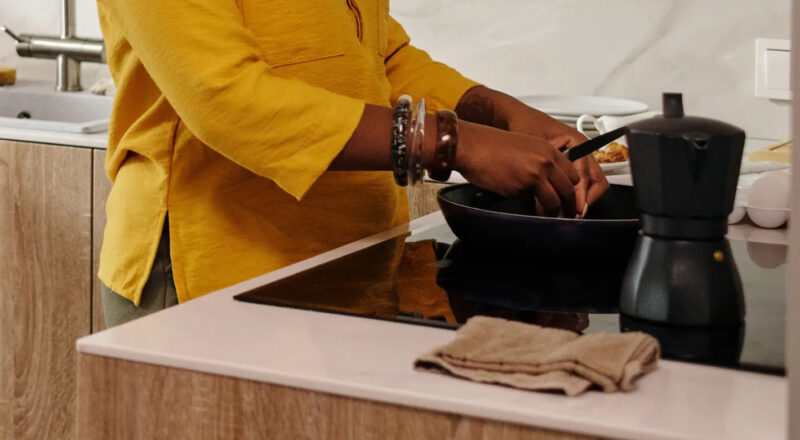When it comes to modern cooking equipment, induction cooktops are becoming increasingly popular due to their efficiency and sleek design. But a common question many kitchen professionals and home cooks alike ask is: is cast iron safe for induction? The short answer is yes, but let’s delve deeper to understand why and how you can make the most of your cast iron cookware on an induction stove.

Understanding Induction Cooking
Induction cooking is a revolutionary method that uses electromagnetic fields to directly heat cookware. This technique is not only energy-efficient but also provides precise temperature control. Unlike traditional gas or electric stoves, induction cooktops require pots and pans made of ferrous metals to create the magnetic field necessary for heating.
How Induction Cooktops Work
Induction cooktops work by generating a magnetic field that induces electrical currents in the cookware. This results in the cookware itself becoming the heat source. It’s an efficient method because it reduces energy loss, as the heat is focused directly on the pot or pan.
The Compatibility of Cast Iron with Induction
Now, let’s address the question: is cast iron safe for induction? Cast iron is a ferrous metal, which means it is magnetic, making it compatible with induction cooking. Cast iron’s dense material retains heat well, providing even cooking results.
Benefits of Using Cast Iron on Induction
Using cast iron on an induction cooktop offers several advantages:
- Even Heating: Cast iron distributes heat evenly, reducing the risk of hot spots.
- Heat Retention: Once heated, cast iron maintains its temperature, which is perfect for searing and frying.
- Durability: Cast iron is robust and can last a lifetime with proper care.
Potential Challenges
Despite its benefits, there are some challenges when using cast iron on induction cooktops:
Weight Considerations
Cast iron cookware is heavy, and when combined with food, it can be cumbersome to handle. Ensure your induction cooktop can support the weight to avoid any damage.
Surface Scratches
Induction cooktops have a glass surface, which can be scratched by cast iron. To prevent this, always lift the pan instead of sliding it across the surface.
Tips for Using Cast Iron on Induction
To maximize the use of cast iron on your induction cooktop, consider the following tips:
Proper Cleaning
Maintain your cast iron’s surface by properly cleaning and seasoning it. This not only enhances its performance but also extends its lifespan. For more details on maintaining cast iron, check out searing meat in cast iron on induction cooktops.
Gradual Heating
Begin with low heat and gradually increase the temperature. This minimizes the risk of thermal shock and helps maintain the integrity of the cookware.
Alternative Cookware Options
While cast iron is a great choice for induction, there are other cookware options to consider:
- Stainless Steel: Offers excellent heat conduction and is lightweight.
- Carbon Steel: Similar to cast iron but lighter and heats up faster.
Conclusion
In conclusion, is cast iron safe for induction? Absolutely. Its compatibility, durability, and heat retention make it an excellent choice for induction cooking. However, it’s essential to be mindful of its weight and the potential for surface scratches. With proper care and usage, your cast iron cookware can enhance your induction cooking experience.

FAQs
Q: Can I use enamel-coated cast iron on induction cooktops?
A: Yes, enamel-coated cast iron works well on induction cooktops and offers the same benefits as traditional cast iron.
Q: Does induction heat cast iron evenly?
A: Yes, induction cooktops provide even heating for cast iron, making it ideal for various cooking techniques. Learn more about this at does induction heat cast iron evenly.
Q: Are there any specific brands of cast iron recommended for induction?
A: Many brands, like Lodge and Field Company, are known for their high-quality cast iron cookware compatible with induction cooktops. For more information, visit Lodge Cast Iron.
This article contains affiliate links. We may earn a commission at no extra cost to you.

